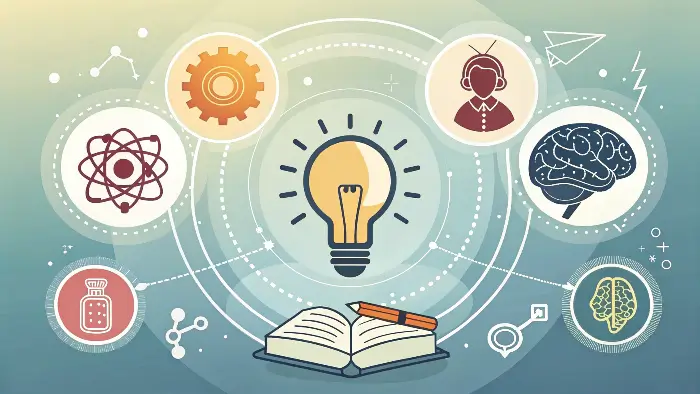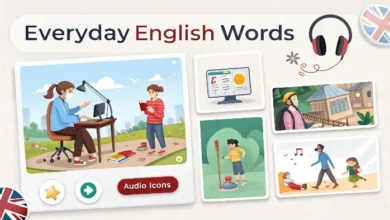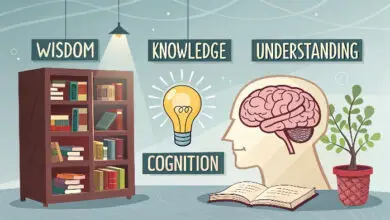Exploring Synonyms of ‘Intellect’: Understanding the Range of Mental Abilities

Exploring Synonyms of ‘Intellect’: Understanding the Range of Mental Abilities
The word “intellect” is often used to describe the ability to think, reason, understand, and acquire knowledge. It encompasses a wide range of mental abilities, from logical reasoning to creativity, and can reflect an individual’s capacity for critical thinking, problem-solving, and insight.
While intellect itself is a broad and essential term, there are several synonyms that can be used to express various aspects of intellectual ability. In this article, we will explore these synonyms and delve into the nuances of their meanings, helping you better understand the vast landscape of human mental capabilities.
What Does ‘Intellect’ Mean ?

Intellect refers to the cognitive faculty by which a person thinks, reasons, and understands. It is the mental capacity for knowledge, learning, and judgment. People often associate intellect with intelligence, creativity, and the ability to grasp abstract concepts. However, intellect is not a single attribute but a composite of many different cognitive abilities.
For example:
- “Her intellect was demonstrated through her ability to solve complex problems with ease.”
- “The debate showcased the extent of his intellect, as he presented well-reasoned arguments and insightful ideas.”
Intellect is not only about acquiring knowledge but also about processing and applying it in meaningful ways. It includes a variety of cognitive skills such as logical reasoning, creativity, and critical thinking.
1. Intelligence
Intelligence is perhaps the most commonly used synonym for intellect, and the two terms are often used interchangeably. However, intelligence often refers to the capacity to learn and adapt to new situations, solve problems, and apply knowledge effectively. It’s a more general term that encompasses both innate abilities and learned skills.
Example:
- “His intelligence allowed him to excel in his studies and quickly grasp complex scientific concepts.”
While intellect can focus more on reasoning and comprehension, intelligence might also involve emotional and social adaptability.
2. Wisdom
Wisdom is another important synonym, although it carries a slightly different connotation. While intellect refers to the capacity for knowledge and reasoning, wisdom involves the application of knowledge in practical, insightful ways, especially when making decisions. It is the ability to use experience and judgment to guide one’s actions.
Example:
- “Her wisdom in handling delicate situations earned her the respect of her peers.”
Unlike intellect, which is more about raw cognitive ability, wisdom implies a deeper understanding of life’s complexities and the ability to make sound, ethical decisions.
3. Reasoning
Reasoning refers to the cognitive process of thinking logically, drawing conclusions, and making judgments. It is the act of applying logical thought processes to solve problems or understand concepts, and it is a crucial aspect of intellect. Reasoning skills are essential for critical thinking and making informed decisions.
Example:
- “His reasoning skills allowed him to solve difficult puzzles that others found impossible.”
Reasoning is a core component of intellect, but it highlights the specific ability to think through problems logically and arrive at solutions.
4. Insight
Insight is a synonym for intellect that emphasizes the ability to see and understand things in a deep and clear way, often recognizing patterns or truths that are not immediately obvious. People with insight are able to grasp the inner workings of complex issues and offer solutions or explanations that others may not have considered.
Example:
- “Her insight into human behavior made her an exceptional psychologist.”
While intellect involves processing and understanding information, insight focuses more on the depth of understanding and the ability to recognize profound truths.
5. Acumen
Acumen refers to the ability to make quick, accurate judgments and decisions. It’s often used in reference to specific areas, such as business or finance, but it can apply to any field requiring sharp judgment and keen perception. Acumen involves a sharpness of mind, which allows someone to excel in their field through quick and effective problem-solving.
Example:
- “His business acumen helped the company navigate through financial challenges successfully.”
While intellect can be more general, acumen refers to specialized intelligence and sharpness, especially in making decisions under pressure.
6. Creativity
Creativity is a synonym of intellect that highlights the ability to think outside the box and generate original ideas. Creative people often use their intellectual abilities to approach problems in innovative ways, blending logical reasoning with imagination. Creativity is especially important in fields such as art, design, and science.
Example:
- “Her creativity in the design process helped her develop unique solutions to everyday problems.”
While intellect includes the ability to analyze and understand, creativity focuses on the generation of new ideas and the ability to envision possibilities beyond the conventional.
7. Brilliance
Brilliance is another synonym that refers to exceptional intellectual ability. It highlights outstanding cognitive capabilities, often in specific areas like mathematics, science, or the arts. A person described as brilliant typically has an extraordinary capacity for reasoning, understanding, or creating, often leading to groundbreaking discoveries or ideas.
Example:
- “His brilliance in mathematics led to numerous innovations in the field of algebra.”
While intellect can refer to a broad and general mental ability, brilliance emphasizes extraordinary, almost genius-level intellect.
8. Mind
Mind is another term that is often used interchangeably with intellect, though it is more general in nature. It can refer to the totality of a person’s cognitive functions, including thinking, reasoning, remembering, and problem-solving. Mind often refers to the broader concept of a person’s mental faculties, including both conscious and unconscious processes.
Example:
- “She has a sharp mind that allows her to solve problems quickly and accurately.”
While intellect focuses on intellectual ability and reasoning, mind encompasses all aspects of mental functioning.
9. Knowledge
Knowledge is a more specific synonym for intellect that refers to the information, facts, and skills acquired through experience or education. It is closely related to intellect but focuses more on the content of a person’s understanding, rather than the mental processes involved.
Example:
- “His extensive knowledge of history made him an expert in the field.”
Unlike intellect, which refers to the ability to process and reason, knowledge emphasizes the accumulation of information.
10. Cognitive Ability
Cognitive ability refers to the mental processes involved in acquiring knowledge and understanding, including perception, memory, attention, and reasoning. It is closely related to intellect, as it encompasses many of the mental functions that contribute to intellectual thought.
Example:
- “Her cognitive ability allowed her to quickly grasp complex concepts and apply them in her work.”
Cognitive ability highlights the various mental processes that contribute to intellect, such as memory and reasoning.
Conclusion
The term intellect encompasses a wide array of cognitive abilities, and its synonyms reflect the diverse ways in which humans think, reason, and understand the world around them. From intelligence and wisdom to creativity and acumen, each synonym emphasizes a different aspect of mental functioning. Understanding these nuances can help you communicate more precisely about the various dimensions of intellectual ability.
Whether you’re describing someone’s mental sharpness, problem-solving abilities, or creative thinking, choosing the right synonym for intellect allows you to convey the intended meaning with greater accuracy and depth.







